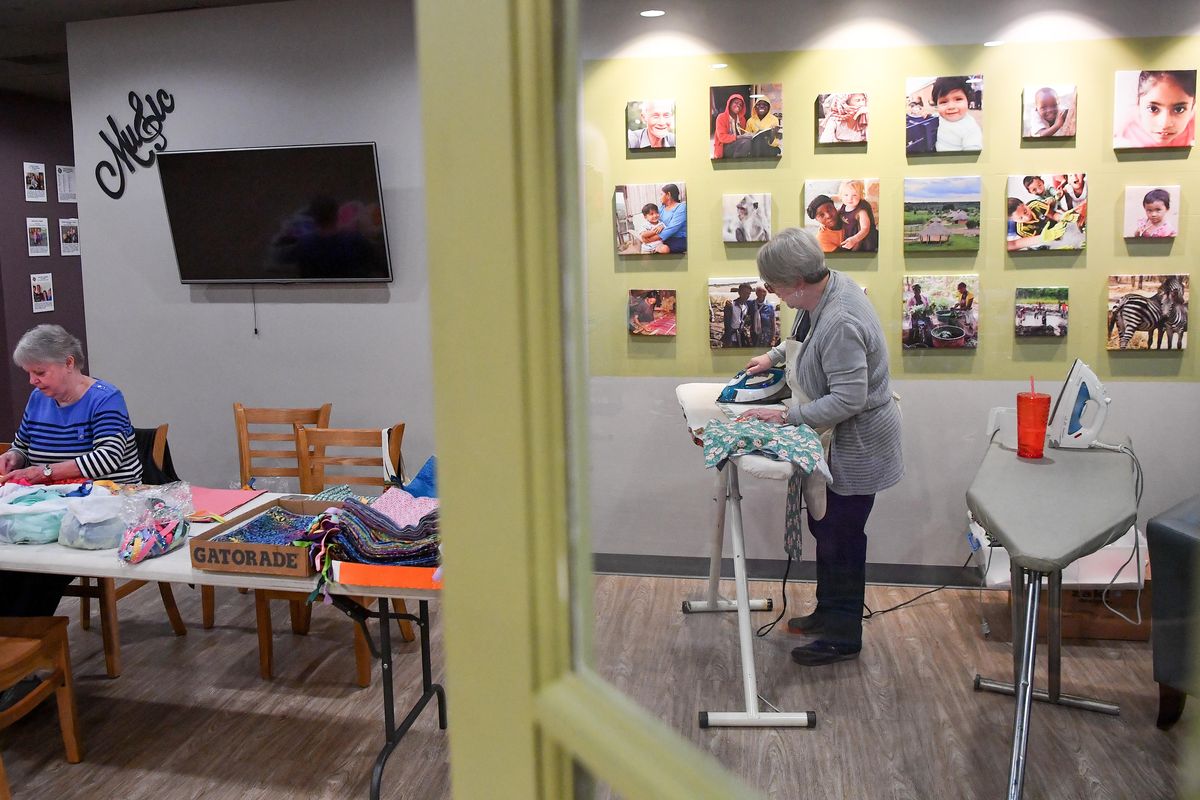Days for Girls groups make reusable hygiene products to send around globe

It’s something most women in North America don’t think twice about. When that time of the month rolls around, stocking up on sanitary supplies is as easy as a quick trip to the nearest store.
But what if you had no access to those supplies or no money to purchase them if you could find them?
For many women across the world, it’s a monthly problem that leaves them stuck at home and for young girls leads to high absenteeism from school.
One in 10 girls in sub-Saharan Africa, 113 million girls in India and 30% of girls in rural Brazil will miss school this year due to lack of sanitary supplies during their monthly periods.
Enter Days for Girls, an international nonprofit that since 2008 has provided sustainable, reusable sanitary pads and menstrual education to more than 1 million women and girls in more than 125 countries.
The organization got its start when founder and CEO Celeste Mergens was working with a family foundation in the outskirts of Nairobi, Kenya, where she assisted at an orphanage. She asked the director of the orphanage what the girls did for feminine hygiene.
“Nothing,” he replied. “They wait in their rooms.”
Horrified, she learned that girls were sitting on cardboard for several days each month, often going without food unless someone would bring it to them. This set in motion her first intervention – disposable pads. But Mergens and her team quickly discovered a major problem – without any place to dispose of the pads, this was neither a viable nor a sustainable solution. It was time for Plan B: a washable, long-lasting pad.
Now, there are Days for Girls groups across the globe, including ones in Spokane and Spokane Valley that make reusable feminine hygiene products and ship them where they are needed.
Last month, members of Days for Girls Spokane gathered at Garland Church in North Spokane, where they meet monthly to make Days for Girls kits.
Sewing machines whirred, sergers hummed, irons steamed and folks laughed and chatted while they worked.
“They call it Cherrie’s Sweatshop,” said co-leader Cherrie Takenaka, grinning. “It’s great fun!”
Stacks of brightly colored cotton squares sat ready to be turned into drawstring bags.
“Many of these girls have never had anything new, so we want to make them both functional and pretty,” Takenaka said. “We use only new, high-quality or quilting-grade fabric.”
The fabric also is used to make panty shields. Foldable liners made of soft flannel are tucked into pockets in the shield, which is then fastened to the user’s underwear with two snaps. Girls can use more liners for heavier flow days. The patented product is washable and easily air-dried.
“Four members of our team are actually using these and say they’re more comfortable than disposable pads,” Takenaka said.
The drawstring bags are filled with two shields, eight liners, two pairs of panties, a washcloth, a bar of soap, two Ziploc bags and an illustrated care and use card. Each kit is $12 to $14 to make.
“The Ziploc bags are to wash and dry the liners and shields in,” Takenaka said. “Brightly colored fabric hides any stains so women aren’t embarrassed to wash and dry them. Menstruation is still taboo in many countries.”
Like a well-oiled machine, members of the group stitched, serged, ironed, folded and filled bags.
“My job is folding washcloths and putting them in boxes,” said Lura Hickman, 7.
She came from Davenport with her mom to help.
Nearby, Angie Titus folded liners.
“Because I do not sew or iron,” she said, laughing.
This month, several members of Days for Girls Spokane will travel to Zambia and deliver kits to 598 girls.
“We’ve already shipped 200 to Africa,” Takenaka said.
While they meet monthly to assemble the kits, many members sew or serge at home.
Kathlene O’Brien is one of them.
“I do the shields at home – about 100 a month,” she said. “I never really thought about sanitary supplies or what I’d do if I didn’t have any products.”
She added a newly serged flannel liner to her completed stack.
“I hope this makes a huge difference in these girls’ lives,” she said.